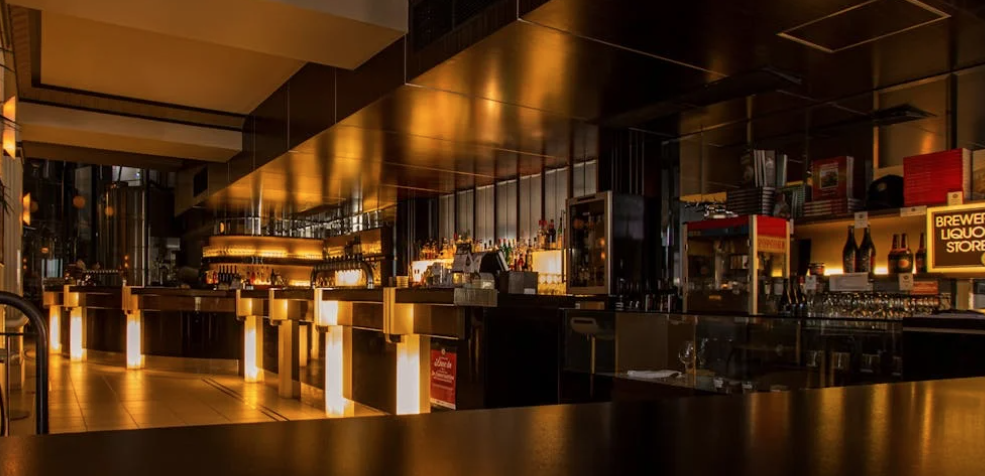How to Choose the Right Supplier for Your Restaurant

Choosing the right supplier is crucial for the success of any restaurant. A reliable supplier ensures a consistent flow of high-quality ingredients and restaurant equipment, which in turn helps you deliver excellent service to your customers. The process of selecting the right supplier involves careful consideration of various factors, including quality, reliability, cost, and customer service. Here’s a detailed guide on how to choose the right supplier for your restaurant, with a focus on restaurant equipment.
1. Assess Your Needs
Before you start looking for suppliers, it’s essential to assess your restaurant’s specific needs. Consider the following:
-
Type of Cuisine: The cuisine you offer will dictate the type of ingredients and equipment you need. For example, a sushi restaurant will require different supplies compared to an Italian pizzeria.
-
Volume of Business: Understand the volume of business you expect. High-volume restaurants need suppliers who can handle bulk orders and provide consistent quality.
-
Menu Complexity: A complex menu with a wide range of dishes may require specialized ingredients and equipment.
2. Quality of Products
Quality is paramount when it comes to both ingredients and restaurant equipment. High-quality ingredients enhance the taste and presentation of your dishes, while durable, efficient equipment ensures smooth operations. When evaluating potential suppliers, consider:
-
Reputation: Research the supplier’s reputation in the industry. Look for reviews and testimonials from other restaurants.
-
Product Samples: Request samples of ingredients and inspect the quality of the equipment they provide.
-
Certifications: Check for any relevant certifications or quality assurances that indicate high standards.
3. Reliability and Consistency
Consistency in the supply of ingredients and equipment is critical to maintaining the quality and efficiency of your restaurant operations. A reliable supplier should:
-
Meet Delivery Deadlines: Ensure timely deliveries to prevent disruptions in your kitchen.
-
Consistent Quality: Provide consistent quality in every order, avoiding fluctuations that can affect your dishes and service.
-
Backup Plans: Have contingency plans in place for unforeseen circumstances like supply chain disruptions.
4. Cost and Value
While cost is an important factor, it shouldn’t be the only consideration. The cheapest option may not always be the best in terms of quality and reliability. Consider:
-
Competitive Pricing: Compare prices from multiple suppliers to get a sense of the market rate.
-
Value for Money: Assess the overall value, considering factors like quality, reliability, and customer service.
-
Bulk Discounts: Inquire about discounts for bulk orders, which can help reduce costs.
5. Customer Service
Excellent customer service is a hallmark of a good supplier. It ensures smooth communication and quick resolution of any issues. Evaluate suppliers on:
-
Responsiveness: How quickly they respond to inquiries and resolve issues.
-
Support: Availability of technical support for restaurant equipment and assistance with product selections.
-
Personalized Service: Willingness to tailor services and products to meet your specific needs.
6. Range of Products
A supplier with a wide range of products can be a one-stop-shop for all your restaurant needs, simplifying the procurement process. Consider suppliers who offer:
-
Diverse Ingredients: A broad selection of fresh, frozen, and dry ingredients.
-
Comprehensive Equipment: A full range of restaurant equipment, from cooking appliances to refrigeration units and smallwares.
-
Specialty Items: Unique or hard-to-find ingredients and equipment that can set your restaurant apart.
7. Sustainability Practices
Sustainability is becoming increasingly important in the restaurant industry. Partnering with suppliers who prioritize sustainable practices can enhance your restaurant’s reputation and appeal to eco-conscious customers. Look for:
-
Sustainable Sourcing: Suppliers who source ingredients responsibly and promote sustainable farming and fishing practices.
-
Energy-Efficient Equipment: Restaurant equipment that is energy-efficient and environmentally friendly.
-
Eco-Friendly Packaging: Use of biodegradable or recyclable packaging materials.
8. Location and Delivery Logistics
The location of your supplier can impact delivery times and costs. Local suppliers often offer quicker delivery and fresher products. Consider:
-
Proximity: Suppliers located near your restaurant to minimize delivery times and costs.
-
Logistics: Their ability to handle logistics efficiently, including on-time deliveries and handling of perishable items.
-
Delivery Frequency: Flexibility in delivery schedules to match your restaurant’s needs.
9. Supplier Reputation and Reviews
Researching a supplier’s reputation can provide valuable insights into their reliability and quality. Use the following resources:
-
Online Reviews: Check reviews on industry websites, forums, and social media.
-
References: Ask the supplier for references from other restaurants they serve.
-
Industry Awards: Look for any awards or recognitions the supplier has received.
10. Trial Period
Before committing to a long-term contract, consider a trial period to evaluate the supplier’s performance. This allows you to:
-
Assess Quality: Ensure the ingredients and equipment meet your standards.
-
Test Reliability: Confirm that the supplier can consistently meet your delivery and quality requirements.
-
Evaluate Service: Experience their customer service firsthand and determine if they are a good fit for your restaurant.
Conclusion
Choosing the right supplier for your restaurant is a critical decision that can significantly impact your business’s success. By carefully assessing your needs and considering factors like product quality, reliability, cost, customer service, and sustainability, you can find suppliers who will provide the high-quality ingredients and restaurant equipment necessary to run a successful restaurant. Take the time to research, evaluate, and trial potential suppliers to ensure they meet your standards and contribute positively to your restaurant’s operations and reputation.

 Virginia Business Blueprint: How to Kickstart Your Entrepreneurial Journey
Virginia Business Blueprint: How to Kickstart Your Entrepreneurial Journey  The Role of Udyam Registration in Atmanirbhar Bharat Abhiyan
The Role of Udyam Registration in Atmanirbhar Bharat Abhiyan  Mango Costs in Pakistan 2024: A Total Diagram
Mango Costs in Pakistan 2024: A Total Diagram  Why Professional Power Management Can Make or Break Your Event
Why Professional Power Management Can Make or Break Your Event  Experience The Thrill Of Zipline Dubai With Captain Dunes
Experience The Thrill Of Zipline Dubai With Captain Dunes  Exploring London’s Best Butcher Shops
Exploring London’s Best Butcher Shops  Enhance Your Shop Appeal with Sydney’s Best Carpentry Services
Enhance Your Shop Appeal with Sydney’s Best Carpentry Services  A Detailed Look at the Features of the LEGO Technic Mars Crew Exploration Rover
A Detailed Look at the Features of the LEGO Technic Mars Crew Exploration Rover